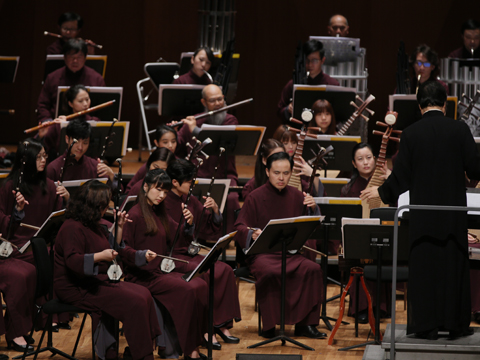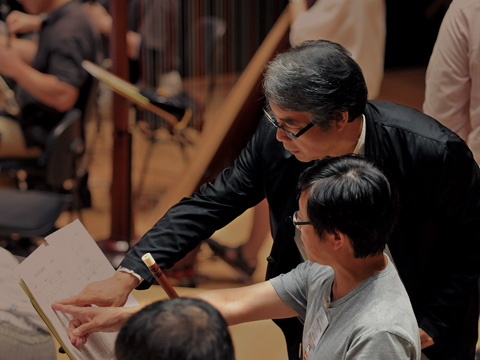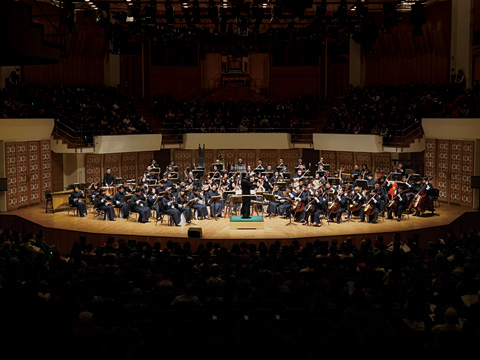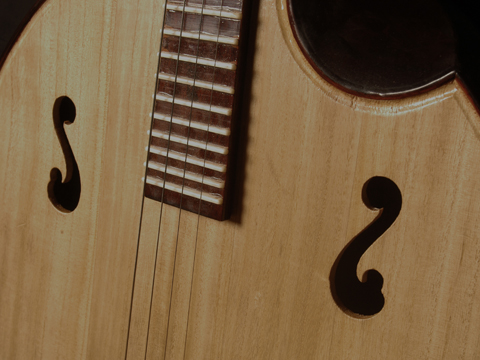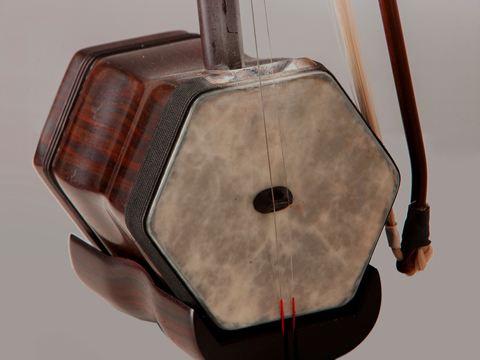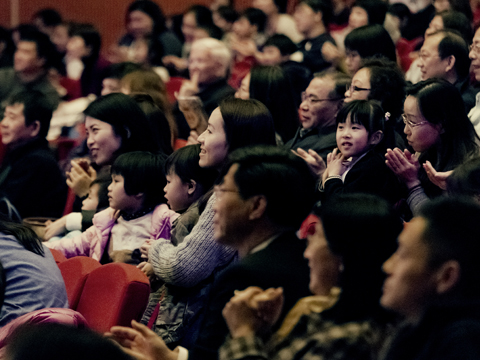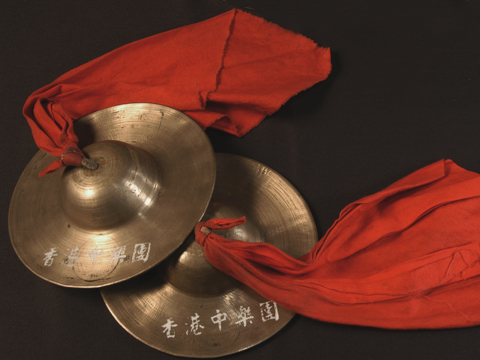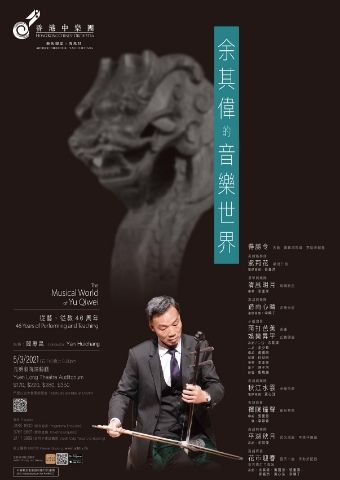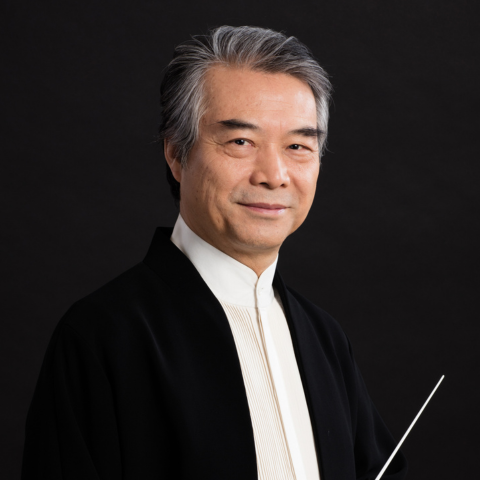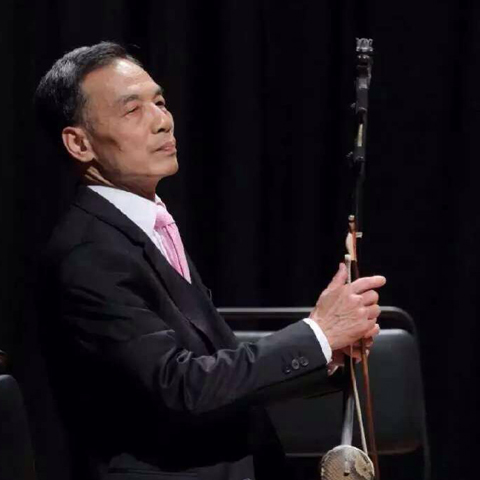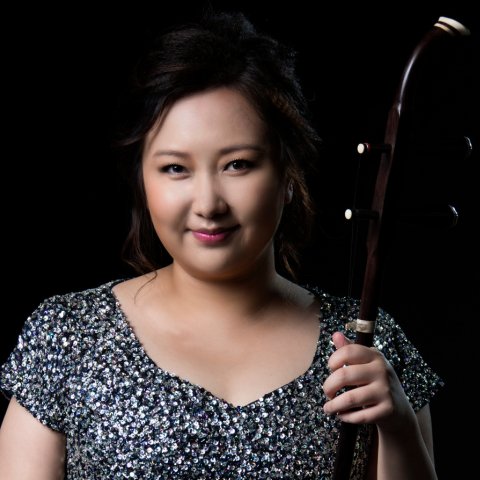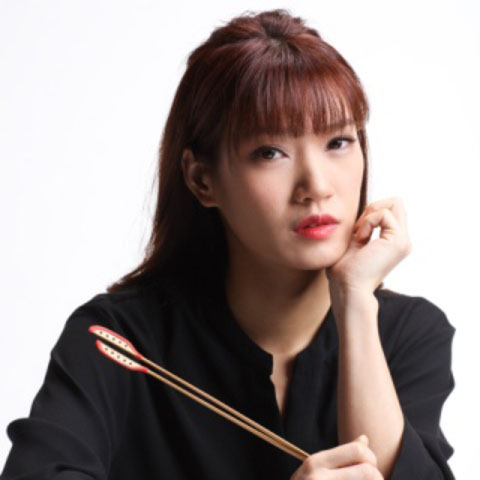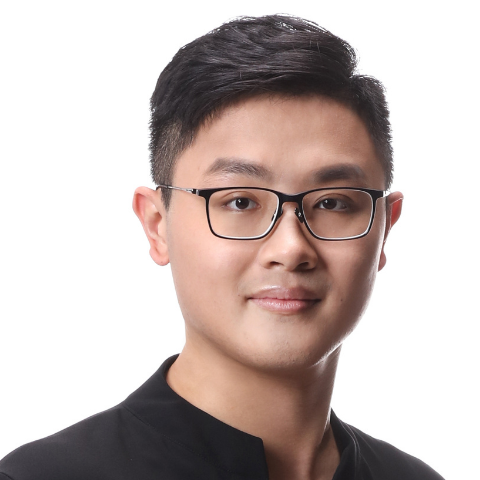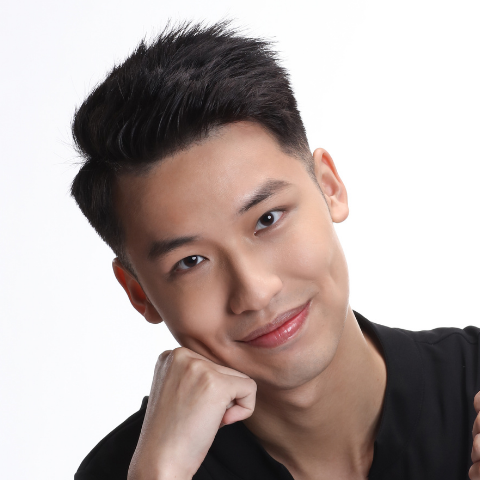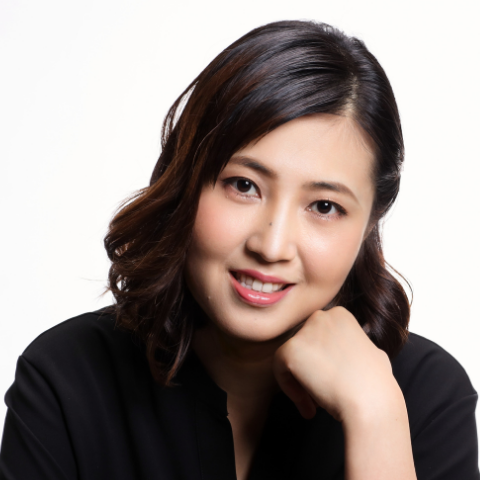The Art of Yu Qiwei’s Gaohu
Chow Fan-fu
The headliner of this concert is, of course, Yu Qiwei and his gaohu. Over and above that, it should also be the culmination of Yu’s artistic pursuit of gaohu music for the past 46 years, a musical heritage which he shares with the audience.
Huqin covers a large family of instruments in ethnic Chinese music. Their history of more than a millennium reliably indicates that variants of huqin have emerged in different times as the result of differing needs, as well as from the blending of cultural characteristics from different localities. Family members include jinghu, jingerhu and banhu from northern China; sihu from Mongolia; zhuihu and sixian from Henan; and yehu and gaohu from South China. Gaohu (literally high-pitched huqin) is so named as it has a higher and clearer tone than erhu from which it is derived, with a soundbox slightly smaller and tuned a fourth higher than the original. In Chinese orchestras and among the huqin family, gaohu is the treble string instrument. As such, gaohu music consists mostly of bright and joyful pieces.
An instrument with a history of a mere century
Since its introduction in the 1920s, gaohu may only have had a relatively short history of about a hundred years. During this century, though, the unique character and artistic expression of gaohu music have both undergone significant changes since the instrument was developed by the master-apprentice duo of Situ Mengyan and Lui Man-shing (aka Lu Wencheng). Continuous improvements have been achieved through the efforts of subsequent generations of gaohu maestros, like Liu Tianyi (1910-1990) and Gan Shangshi (1931- ), as well as Yu Qiwei.
Gaohu was originally created to take the place of erxian as the main instrument in Cantonese music and operas. It therefore possesses distinct characteristics of the culture of South China and the vernacular colours of the Guangdong region. But these attributes also present limitations for the instrument, for it is regarded as only suitable for Cantonese music and operas, and unable to compete with erhu and other ethnic musical instruments in terms of artistic expressivity.
Yet this shortcoming has been overcome to a large extent, through the dedicated input from and further development by more and more gaohu masters, the creation of an ever-expanding repertoire of new works, plus improvements in playing techniques and the instrument itself. The programme for this concert includes both traditional adaptations and original compositions, played as solos, in ensembles, or with the large orchestra as full-scale concerto productions. Performed by Yu Qiwei and his talented disciples, this concert amply underscores the unique artistic characteristics of Yu’s gaohu.
A profoundly philosophical realm
On the one hand, Yu’s music retains the nimble liveliness typical of Cantonese music while adding a touch of lyrical splendour to its timbre, to give his style a kind of “contemporaneity”. On the other, Yu realizes through different pieces of work the l’espirt and vigour considered to be characteristic of the Chinese musical tradition. It gives his performance a sense of poetry and fantasy, thereby elevating gaohu music to a realm that is philosophically profound.
It may be said that with Yu’s bowing, the expressiveness and effective performance of the gaohu soundbox held between his knees is so greatly expanded as to transcend the confines of “Yue” or Cantonese music. Even when playing very popular Cantonese melodies, not only does the familiar charm remain intact, it can readily be felt that this charming quality is in fact enhanced. With such a feeling, the listener is quite naturally immersed in a state of philosophical profundity, the outcome of which was not easily achieved in the past. This achievement can indeed be ascribed to the culmination of Yu Qiwei’s decades-long pursuit of the art of gaohu.

